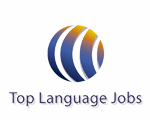The EEA comprises of Iceland, Norway and Liechtenstein, and all EU member states: Austria, Belgium, Bulgaria, Croatia, Cyprus, Czech Republic, Denmark, Estonia, Finland, France, Germany, Greece, Hungary, Ireland, Italy, Latvia, Lithuania, Luxembourg, Malta, Netherlands, Poland, Portugal, Romania, Slovakia, Slovenia, Spain, Sweden and the UK.
EEA nationals are entitled to the same treatment as British subjects in matters of pay, working conditions, access to housing, vocational training, social security and trade union rights, and immediate dependants are entitled to join them and enjoy the same rights. EU legislation is designed to make it easier for people to meet vocational training requirements in other member states.
There are, however, still practical barriers to full freedom of movement and the right to work within the EU. For example, some jobs in various member countries require job applicants to have specific skills or vocational qualifications, and qualifications obtained in some member states aren’t recognised in others. Other more practical barriers include housing availability and cost, and the transfer of pension rights. There are also restrictions on employment in the civil service, when the right to work may be limited in individual cases on the grounds of public policy, security or public health.


